↑ ENGLISH
Today begins the adventurous realization of the model kit Mk.1 MALE by TAKOM.
History
The Mark I was an English wagon adopted during the Great War, especially on the Franco / German front.
What does the Male version differ from the Female?
The evil used two 57mm Hotchkiss cannons on the sides of the tank and the three Hotchkiss guns from .303, two of which were behind the cannons and one on the front.
The Female used four water-cooled Vickers machine guns (two on each side).
The first tanks were used towards the end of 1916 in the Battle of the Somme to continue to other historical battles such as that of the Battle of Cambrai (1917) and up to the attack on Soissons with German A7v, French rivals17 and French MkIVs.
In fact, at the end of the war the wagons had become so important for the phases of the battle that on August 8, 1918, 604 tanks facilitated the advance of the Allies on about 30 kilometers of the Western Front, forcing the Germans to retreat.
From then on the wagons assumed a real important role for all future wars.
Photos, images and videos taken by myself during the construction of the model.
↑ ITALIANO
Oggi comincia l'avventurosa realizzazione del model kit Mk.1 MALE di TAKOM.
Storia
Il Mark I fu un carro inglese adottato durante la Grande Guerra soprattutto sul fronte franco/tedesco.
Cosa differisce la versione Male dalla Female?
Il male utilizzava due cannoni Hotchkiss da 57 mm posti ai lati del tank e i tre mitragliatori Hotchkiss da .303, di cui due lateralmente dietro i cannoni e una frontale.
Il Female utilizzava quattro mitragliatrici Vickers raffreddate ad acqua (due per lato).
I primi tank vennero utilizzato verso la fine del 1916 nella battaglia della Somme per proseguire verso altre battaglie storiche come quella della Battaglia di Cambrai (1917) e fino all’attacco a Soissons con A7v tedeschi, Renault17 inglesi e gli MkIV francesi.
Alla fine della guerra infatti i carri erano entrati così di rilievo per le fasi della battaglia che l’8 agosto 1918, 604 tank facilitarono l’avanzata degli alleati su circa 30 chilometri del Fronte Occidentale costringendo i tedeschi alla ritirata.
Da li in poi i carri assunsero un vero e proprio ruolo di rilievo per tutte le future guerre.
Foto, immagini e video scattate dal sottoscritto durante la realizzazione del modellino.

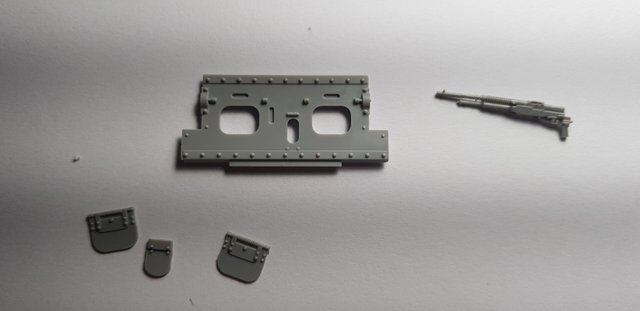
We begin to create the front with the piece in fact front, two side windows and a central that will remain open to accommodate the machine gun Hotchkiss caliber .303
Cominciamo a creare il frontale con il pezzo appunto frontale, due finestrelle laterali e una centrale che rimarrà aperta per ospitare la mitragliatrice Hotchkiss calibro .303
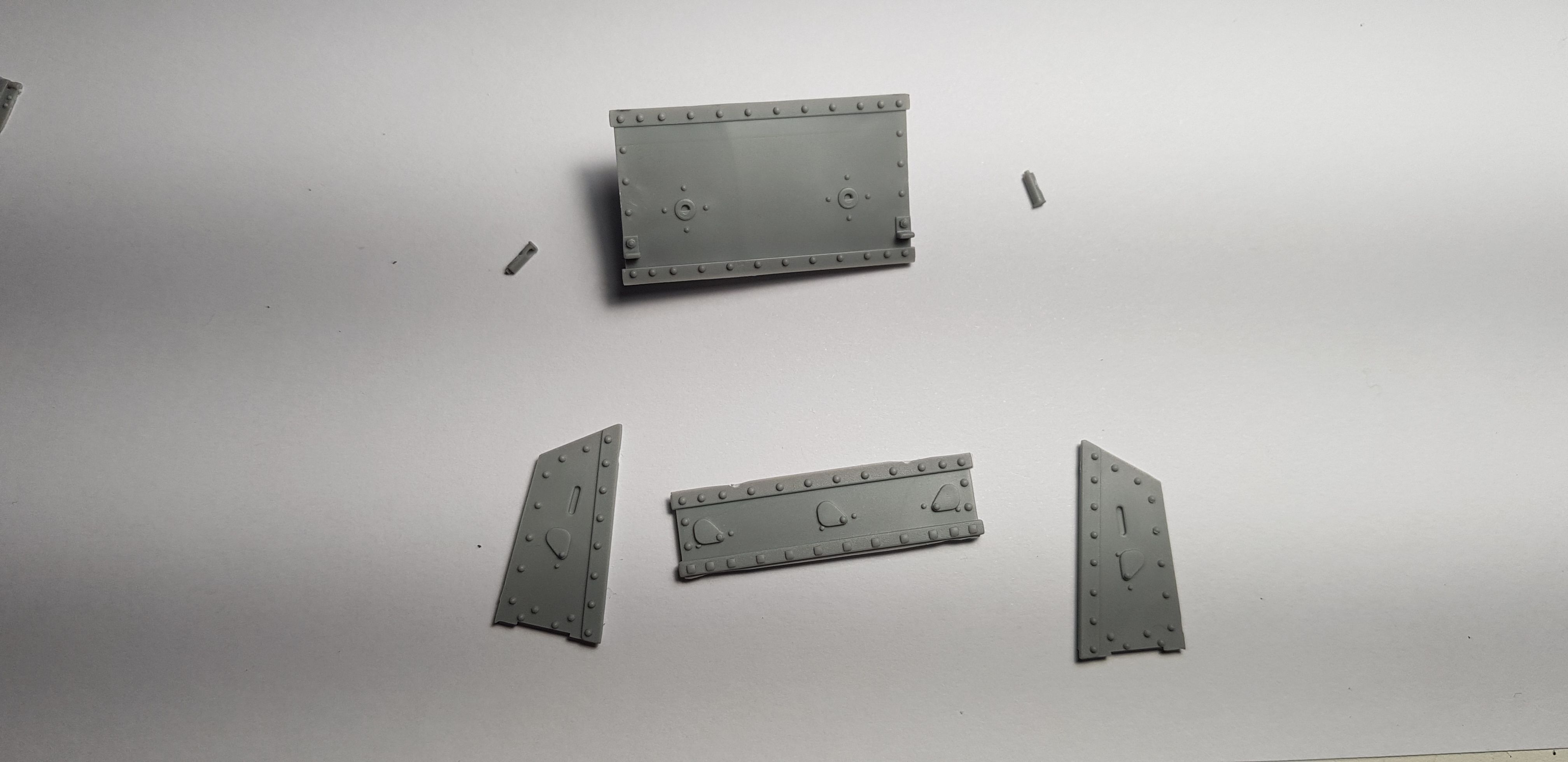
Then we move to the turret cover of the front machine gun, then the upper piece with two pins and the side and bottom ones
Poi passiamo alla copertura della torretta della mitragliatrice frontale, quindi il pezzo superiore con due perni e quelli laterali e inferiori
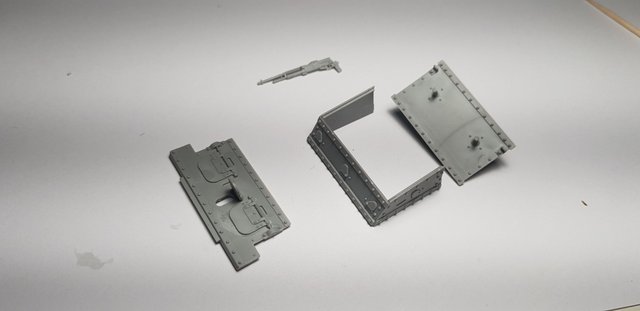
Here's how the front part looks like with the slots closed and an open hatch door for the machine gun and the upper opening mounted in the side pieces
Ecco come appare la parte frontale con le feritoie chiuse e un portellone aperto per la mitragliatrice e la aprte superiore montata nei pezzi laterali
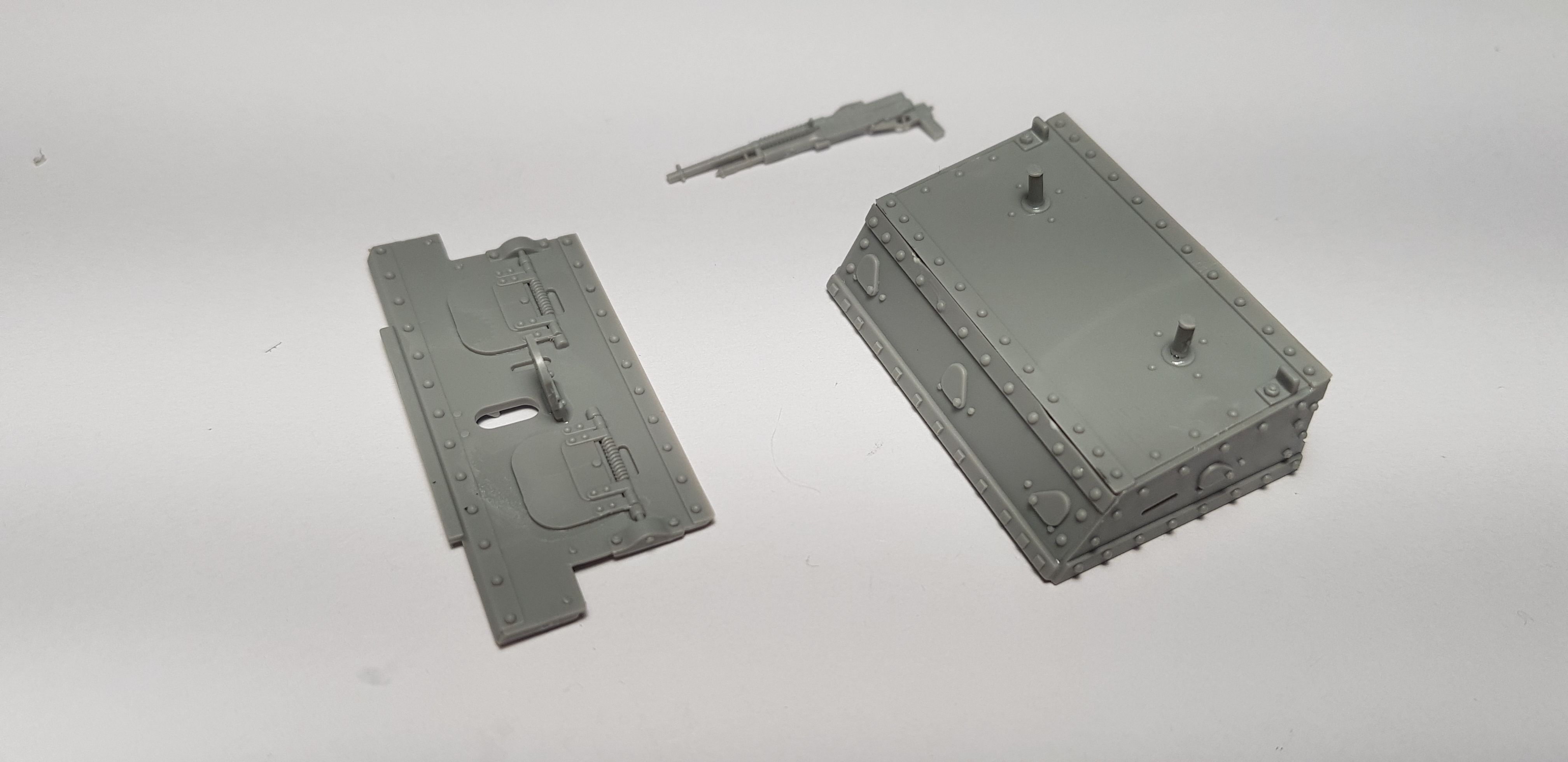
Side parts and top mounted. All calmly, It's a little model that I'm going to create for a long time, so I'll dedicate a lot of effort to make it
Parti laterali e parte superiore montati. Tutto con calma, E' un modellino che ho intenzione di creare da MOLTO tempo, quindi dedicherò molto impegno a realizzarlo
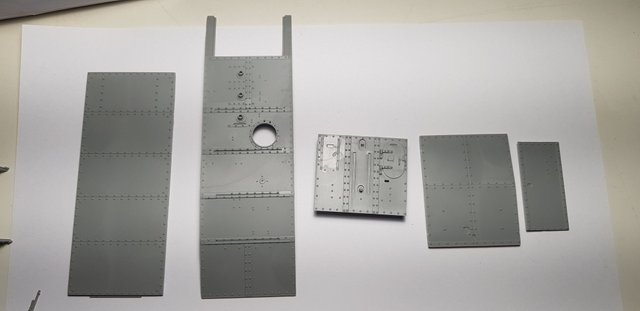
Let's start with the central part of the Mk1. From left to right: Bottom, top, rear lid, front hull and front bulkhead
Cominciamo con la parte centrale dell' Mk1. Da sinistra a destra: Fondo, parte superiore, portellone di tergo, scafo anteriore e paratia frontale


Grazie del Podium!
Downvoting a post can decrease pending rewards and make it less visible. Common reasons:
Submit